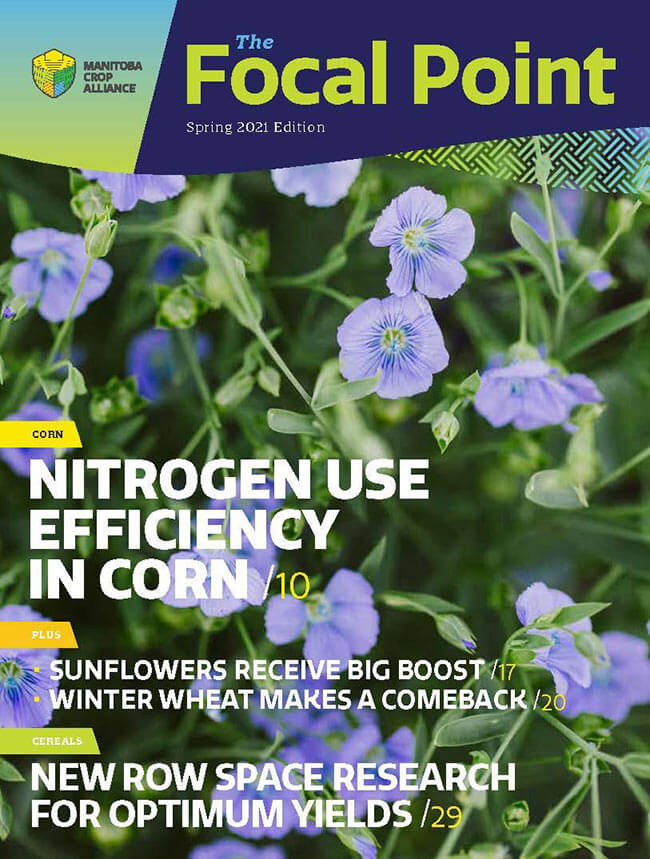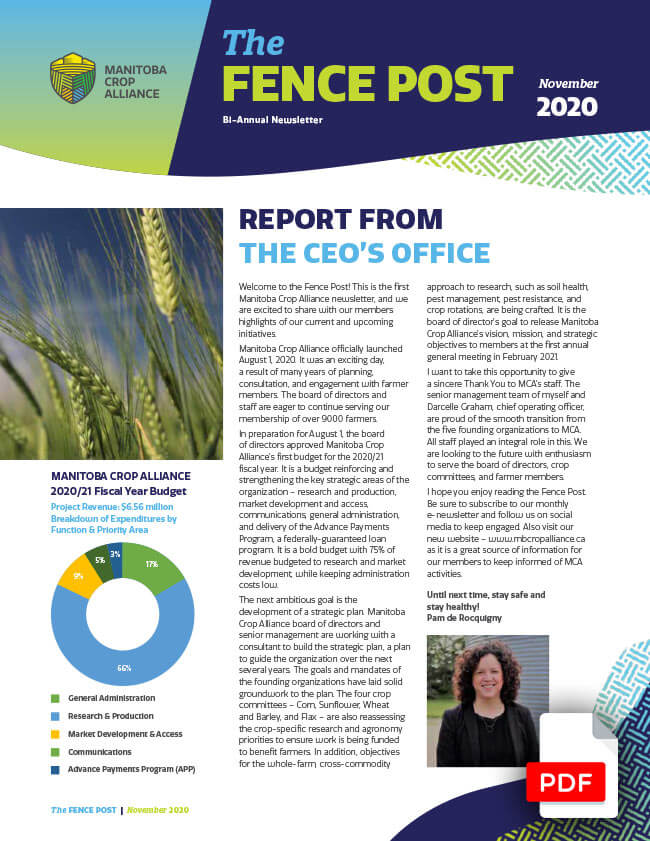Manitoba Crop Alliance Launches New Whole Farm Research Program And Calls For Letters Of Intent
FOR IMMEDIATE RELEASE
Thursday, March 18, 2021 (Carman, MB) – The Manitoba Crop Alliance (MCA) is now accepting letters of intent (LOI)s for the newly developed Whole Farm Research Program. The Whole Farm Research program is a whole-farm, cross-commodity approach to research. It is not crop-specific and leads to innovative solutions for the benefit of Manitoba producers now and into the future.
“The Whole Farm Research Committee delegates have been busy building the objectives and priorities for an exciting way of working together,” says Lori-Ann Kaminski, Research Program Manager at MCA. “It’s exciting bringing the information we received from Manitoba farmers and other MCA delegates together to develop the program and call for research projects to bring the Whole Farm Research priorities to life.”
Whole Farm Research priorities include crop rotation innovation, soil health: organic matter, cover crop and intercropping, pest management: weeds, diseases and insects, as well as water. General principles for MCA funded Whole Farm Research projects are:
- Innovative and forward-thinking.
- Designed to answer farmers questions or resolve issues.
- Solution-oriented with actionable outcomes and an emphasis on end goals that producers can implement in their operations.
- A pathway to assess and integrate new/next technology into Manitoba cropping systems.
- Another channel to communicate and collaborate with other organizations in Manitoba and across Canada.
- An opportunity to enhance communication channels with consumers and the public.
“The Whole Farm Research Program is a unique opportunity for Manitoba,” says Warren McCutcheon, farmer, delegate on the Whole Farm Research Committee and director with MCA. “It’s a chance for researchers, commodities and organizations across the country to collaborate on initiatives to increase profitability for grain farmers in Manitoba now and into the future. It’s also an opportunity to share success stories to the public.”
LOI’s will be accepted until Thursday, April 15, 2021 for projects to begin in 2022. MCA will consider 3–5 year proposals related to grain production and value‐added processing. An overriding priority is improving the profitability for Manitoba’s barley, corn, flax, wheat or sunflower producers.
For more information about MCA’s Whole Farm Research Program or to review the LOI eligibility criteria, please visit mbcropalliance.ca/research/projects or contact Lori-Ann Kaminski at loriann@mbcropalliance.ca.
-30-
About Manitoba Crop Alliance:
Manitoba Crop Alliance is a non-profit organization established August 1, 2020 representing over 9,000 farmer-members. Manitoba Crop Alliance puts their farmer-members first and strives to continuously improve the competitiveness and profitability of all crops represented by the organization by focusing on four main areas: research, agronomy, market access and development, and communications. It is through investment in these key areas that Manitoba Crop Alliance can ensure wheat, barley, corn, sunflower and flax are sustainable production choices for Manitoba farmers. For more information, visit mbcropalliance.ca.
For more information, please contact:
Lori-Ann Kaminski
Research Program Manager
Manitoba Crop Alliance
204.745.0366 | loriann@mbcropalliance.ca













